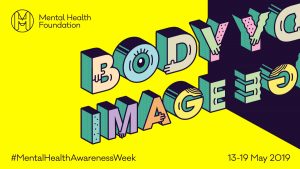This week has shone a light on the importance of taking care of our mental health and particularly how negative feelings around body image can have a detrimental effect on how we feel about ourselves.
As regular followers will know, our work at LifeLab is around how we let young people discover for themselves how they can take care of their health now and in the future, an approach that can only help empower adolescents to make positive change.
That feeling of people able to do something, armed with the knowledge they need to make better choices has real impact when it comes to behaviour change. Our studies are continuing to build this body of research but we already know that after participating, 74 per cent of students said yes to the question “has the learning today influenced how you will manage your own health”.
Making those choices through self-discovery can only improve how young people feel about themselves and in turn their mental health.
Mental Health Awareness Week which is a campaign led by the Mental Health Foundation, has made a series of recommendations around what can be done to improve negative feelings around body image. It was interesting to see how they have recognised the importance of promoting public health campaigns on obesity and nutrition that don’t stigmatise but instead focus on the positive action that can be taken around healthy eating and activity.
The recommendations also recognise the importance of partnering with schools in delivering a toolkit to help develop a charter for achieving a healthy and positive body image.
Working with schools is a key part of LifeLab’s success. We believe in working with educators in delivering our science-based education intervention, we not just giving them something more to do but something that has an embedded impact and can promote health improvements for all. Our fully resourced package of teaching, along with professional development for teachers gives young people the chance to benefit from an intervention that will be much more than a one-off campaign, but develops a real supportive environment which can be a solid foundation for change.
Poor mental health can be a real trigger for young people to make choices that will negatively affect their future health so it is vital that we recognise how important it is to join up the work that is already going on and turn it into a concerted public health movement to improve the health of generations to come.